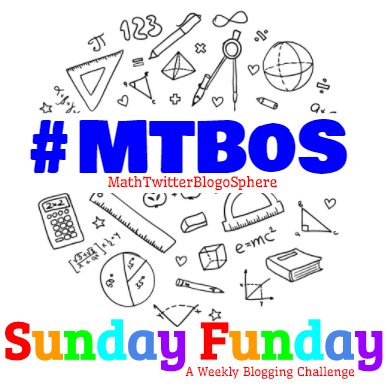
I guess I'm behind the times as the Sunday Funday Blog challenge prompt I want to respond to is already a little old, but it inspired me to write a post, so here I am.
I want to write about classroom organization, specifically what to do if you don't have a classroom. There are some of us nomadic teachers out there, shlepping stuff from classroom to classroom, trying to figure out how to connect to the digital projector with the wrong cords when our laptops only have hdmi ports and the projector only has vga. There are some interesting and unique challenges you face when you don't have your own space.
Challenge #1: Collecting homework. If you have to move from one classroom to another, to another without much of a break in between, and you need a teeny bit of time for set-up, you don't have time to go stash homework somewhere. So if you collect homework in one class, you have to shlep it to another classroom, then if you collect homework in that classroom, your homework shlepping multiplies. It's impossible to do things like notebook or binder checks, unless you try to check it during class while the kids are occupied, but our periods are only 50 minutes which makes that strategy tricky too.
Solution: I don't collect homework. I've come up with two ways of assigning homework without needing to collect it.
- Way 1: I assign the homework, show them the answer key in class and while they're grading their own work, I go around and give them a stamp for having it done on time. I use alphabet stamps and go through the alphabet so at the end of the unit, it's easy for me to see when an assignment is missing. Pros: the kids grade their own work so are more cognizant of their mistakes. They can get their questions addressed way more quickly than if I collected work and they ask deeper questions because they can see where their work deviated from mine and catch misconceptions they didn't even know they had. Cons: Takes time away from instruction.
- Way 2: I post the answer keys to the homework on my class website and the kids check their work on their own and come to class with questions. Then in class, I choose a problem from the homework and display it. Then I hand out blank note cards and the kids solve the problem from the homework without their homework or notes in front of them. If they did the homework and checked their work thoughtfully, recreating the solution should be a breeze. Pros: They have access to the answer key as they're working through their homework so can be more thoughtful and can come to class with really specific questions. Having to then reproduce the work in class the next day really reveals if they understood it or not. Cons: cheating is a possibility but as only the note cards are graded it won't help their score. I also see a smaller sample of their work so I have less info on their understanding.
Solution: Our school does have a digital projector in each room so I bought myself a document camera and with that, my laptop, and a vga to hdmi converter I can reliably use the projectors. I write a notes template for the lesson that day and have students take notes from that. Then I can scan in the template each night and they'll always have access to the notes!!! I don't have to ever argue with students anymore about notes. If they didn't take them- go check the website! If they're absent, go check the website! Teaching this way also makes displaying student work a breeze. We all had a great time when I had my algebra 2 students solve a quadratic formula problem on note cards. One by one I showed the cards via document camera and every answer was different! There was some laughter and a lot of sheepish "I guess you were right in telling us to be more careful"s.
Challenge #3: Classroom management has always been a struggle for me, and I thought I'd finally come to grips with it a few years ago when I was teaching in California. Teaching without a classroom makes me feel less valid. I can't control my space, I'm always puffing from one place to another frantically trying to set things up. I lose authority this way. I don't have a solution for this one. It's just an interesting observation. I do my best, I try to pretend, but without feeling like I own my space I also don't feel as in command of my students (not that I want to command them- gently trick them into doing what I want without them noticing?)
I'm definitely not as good a teacher when I have to teach this way. But I'm pleased with the grading system and I'm really enjoying the ethical conversations we're having about how to use answer keys responsibly. Students have so many resources at their fingers, but don't know how to properly use them. Even with the answer key sitting in front of him a student today couldn't scan through his paper and compare it to the key. He kept skipping around or missing details. There are so many hidden executive functioning skills/deficiencies that are revealed when kids have to grade their own work.
Yay! glad you're back! - a fan lol.
ReplyDelete